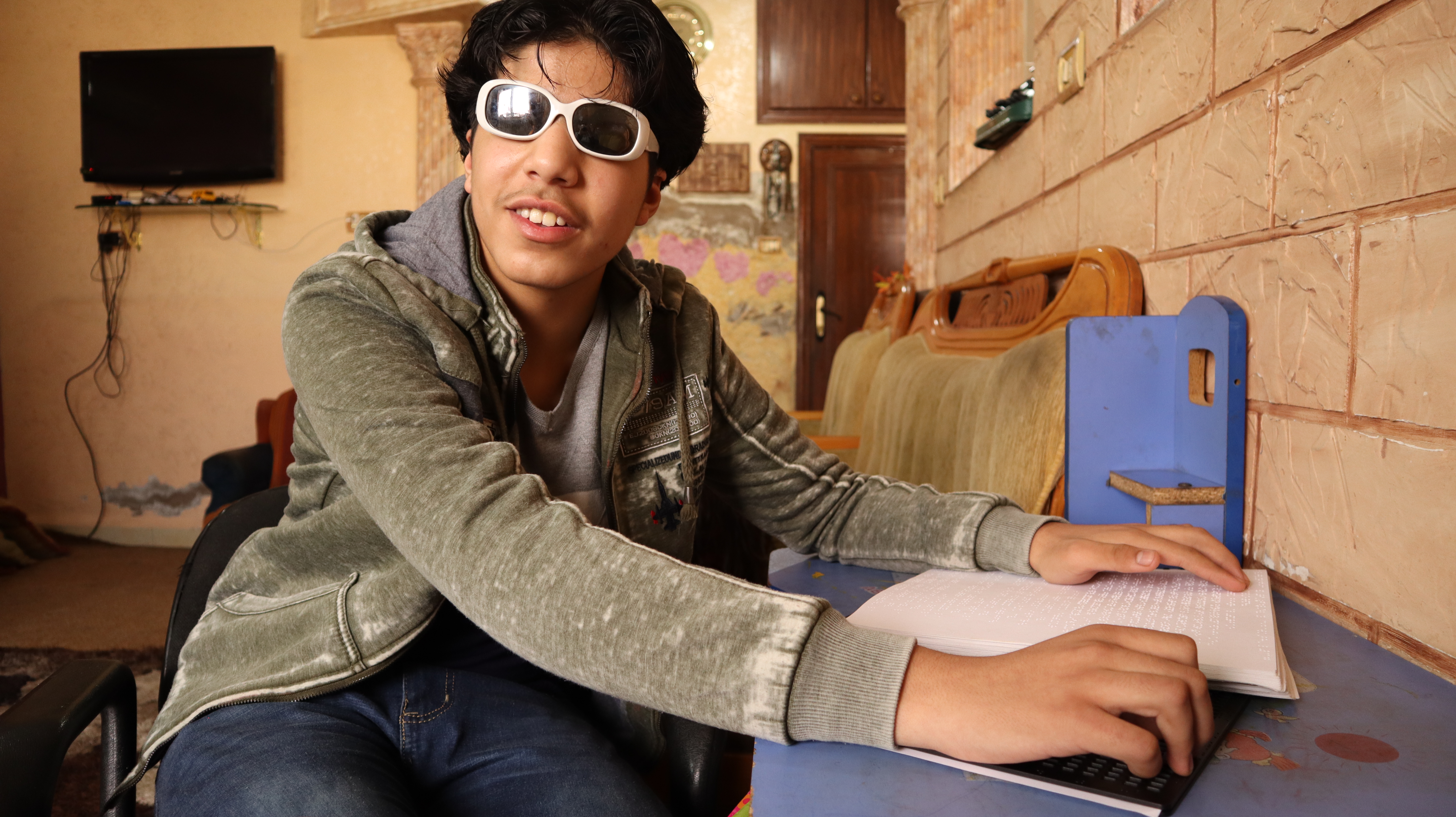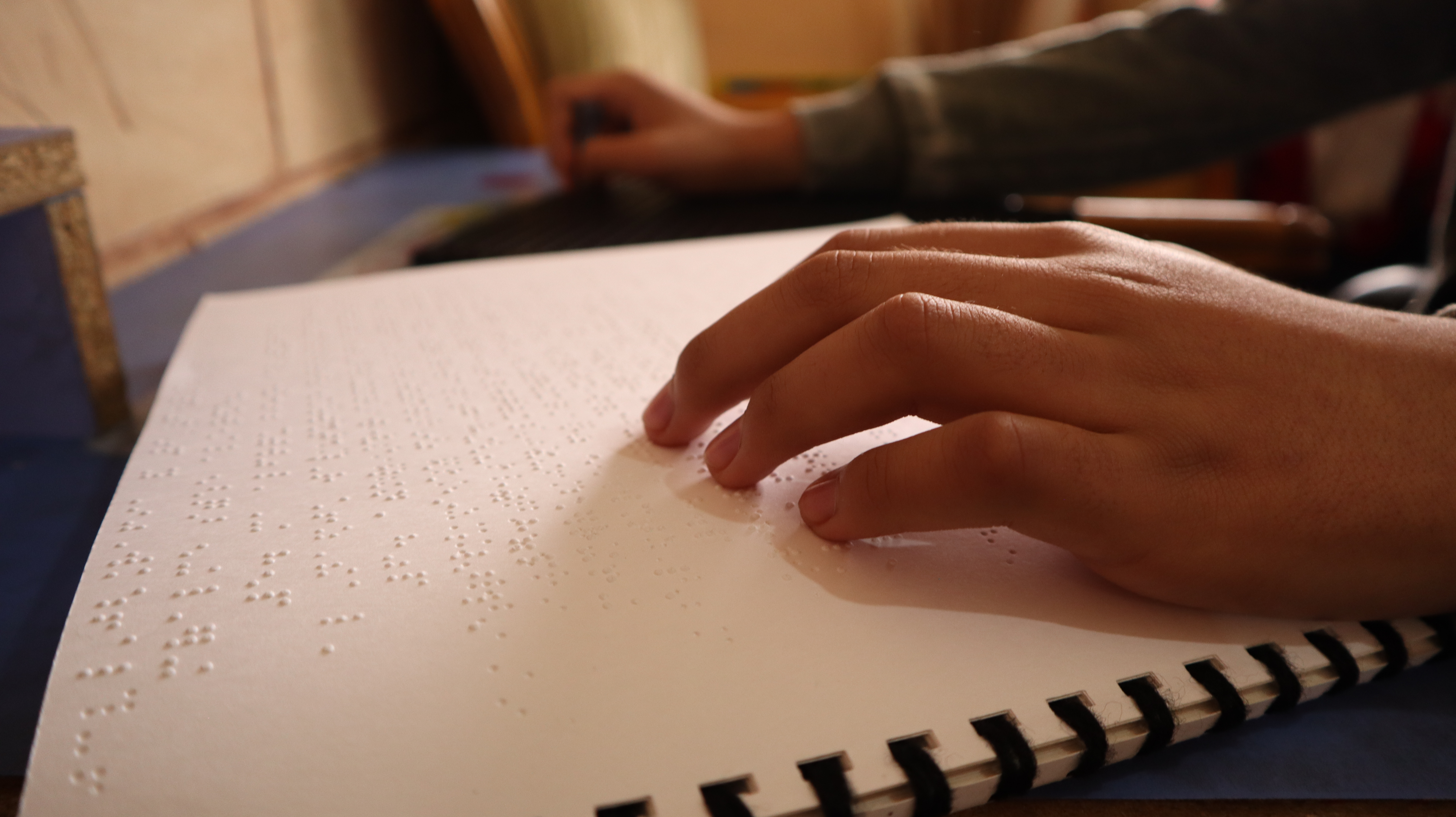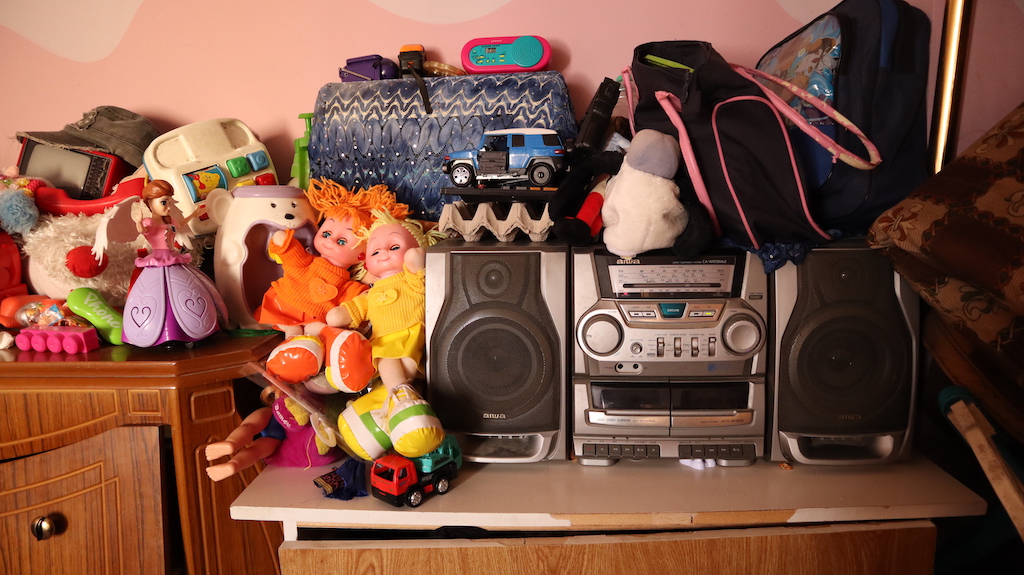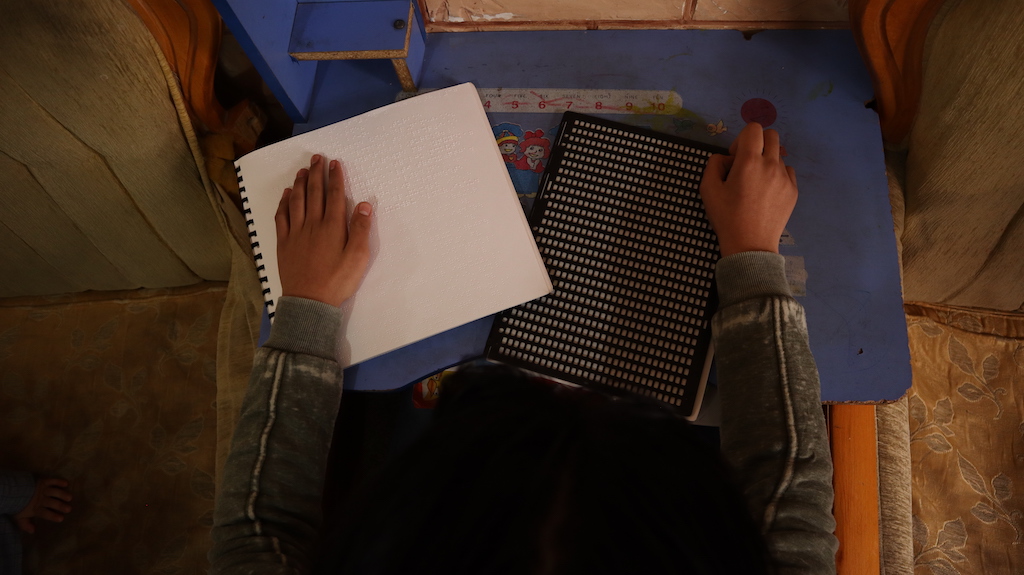A day in the life of Abood
Children and adolescents living with severe disabilities in Jordan often struggle to access essential services and to lead independent lives. However, when they have support from their families and access to the right services, they can truly thrive. This is the story of Abood, who thanks to dedicated support from his family and the ability to access a specialist school for visually impaired students in Amman, is able to realise his passions and lead an active life.

Credit: Agnieszka Malachowska
Abood is a 14-year-old blind boy from Amman, Jordan. He is the oldest child in a family of 8 and he often helps his mother take care of his younger siblings. His parents work hard to provide everything he needs, and Abood is very grateful for their efforts and sacrifices they go through to send him to school and ensure he can participate in extracurricular activities. His parents have taught him horseback riding, and in the future Abood would like to learn how to swim.

Abood wakes up every day to the sound of the radio. He likes to listen to science programmes, but also keeps an ear out for the occasional performance of his favourite comedians. He loves to sing songs he learned from the radio, in various languages. This is good practice for when he rehearses with his musical group, organised by the German Jordanian University.

Going out is not easy for Abood. Most of the time his family accompanies him, but even then strangers in the street can be unfriendly. Although it is challenging, he wishes that he had more freedom to explore the world around him: “my main challenge is that my family is very protective. In front of our house there is a small restaurant and I cannot even go there to buy a sandwich on my own!”

Abood loves learning and studies hard, especially scientific subjects. He programmes robots with which he competes in national and international competitions. He would love to go on studying science and continue on to university, but fears the subject may not be available to visually impaired students like him: “in Jordan there is no scientific track for blind students; we must select the literature track even if we are excellent in scientific topics.”

Abood does not want to wait too long before he thinks about marriage. He hopes to start his own family by the age of 25, but he thinks that meeting likeminded people is challenging: “I don’t have close friends around me, because I think that most people do not match my thinking.”

His younger sister is also blind. Abood adores her and helps her as much as he can. She developed a hearing problem when she was younger, which means she didn’t learn to speak properly for a number of years. She got by using her own invented language, but luckily the problem has been solved thanks to the persistence of her mother in getting specialist support

Abood feels that special schools for children with disabilities separate children from the real world. He believes that he should be in a regular school, even if it would mean that sometimes he is confronted with a lack of understanding and unfriendly attitudes: “if I were in a normal school, I would feel like I am integrated with ordinary kids, and could speak with them. But this is not so, meaning that we, the blind, have our own world; I consider schools for visually impaired as if it is a separate world.”
